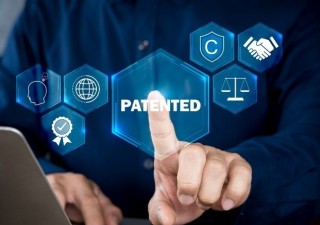JPO Trains Foreign Lawyers on Patent Examinations
11 May 2016

Under the aim of strengthening IP protection, the Japan Patent Office has been inviting trainees from developing and emerging countries of the Asia-Pacific region, Latin America, and Africa, and conducting training programmes for them in Japan. The programmes are designed to support the development of human resources involved with IP systems in those countries.
“A former JPO examiner who works at our firm now says that examiners communicate with the trainees in English. This means the trainees are selected from among those having English skill,” says Hiroshi Uesugi, a Japanese patent attorney at Nakamura & Partners in Tokyo. “With regard to the examiners’ English level, JPO actually asks outside English schools to dispatch native English teachers to take charge of English classes.”
In addition, Uesugi says, most Japanese examiners have the opportunity to go to patent offices in a foreign country if they wish to, although there is significant competition to visit the US Patent and Trademark Office and the European Patent Office. “If the examiner is excellent, JPO will send him to a college abroad, so considering the above, JPO examiners’ English skills are relatively higher than those of average Japanese people.”
The examiners who have studied abroad are recognized as having good English skills and are often tasked with training for teaching trainees, Uesugi adds. “Nonetheless, an outside translator always accompanies the training for communication accuracy, according to the former examiner.”
The Training Course on IP Examination – Advanced Program Part II, conducted from February 24 to March 1 this year, was held in cooperation with the World Intellectual Property Organization by utilizing the WIPO Funds-in-Trust/JAPAN programme that is supported by voluntary contributions that the Japanese government has been making to WIPO. The trainees in the course were patent examiners who attended the Advanced Program (Part I) conducted last November. This second part of the course was designed for trainees to learn more practical skills based on what they learned in the previous course, focusing mainly on conducting case studies.
“Fundamentally, JPO’s assistance for other countries utilizes the scheme of Official Development Assistance of the Japanese government. Since ODA is assistance conducted under the government’s pledge with other countries, it must be implemented without fail. JPO’s assistance must be implemented without fail because it is incorporated into ODA, even if JPO cannot obtain a direct benefit. JPO conducts the assistance based on the instructions of the Ministry of Economy, Trade and Industry (METI) which is a superior organization of the JPO,” Uesugi says. “If the examiner’s skills of the countries are improved, JPO’s examiners may collaborate with them for domestic patent examinations, which might be an indirect benefit for JPO.”
As the global examination environment gradually improves, IP application costs for Japanese companies would reduce, which could translate more overseas operations of the domestic companies, Uesugi says. “This coincides with the goal of METI.”
Eight trainees who attended the course had studied many cases in advance as a preparation for this second part of the course as well as reviewing the previous lessons. According to their preparation, they conducted case studies from the perspective of novelty and inventive step. Furthermore, they received the on-the-job training from JPO’s examiners.
“It would be true that the on-thejob training puts some burden on JPO’s examiners. However, the current backlog has been substantially improved comparing to 2010 due to the decrease of patent applications and the increase of examiners,” Uesugi says. “The average examination period (from filing a request for examination to issuance of first office action) has shortened to around 11 months now. JPO’s examiners have patent application quotas, but [the quotes] would be reduced if they are assigned to train foreign examiners. If they accomplish the commission, it would help them be promoted at JPO.”
Trainees were not only able to improve their capabilities for substantive examinations through attending the two IP examination advance courses conducted in this fiscal year, but also given a chance to deepen their friendship among the trainees as well as people working in the field of IP in Japan. The JPO has high expectations that the trainees will play important and active roles in their countries.





